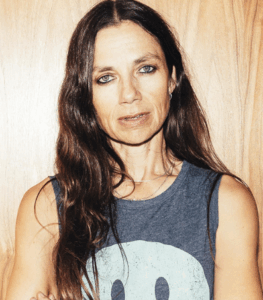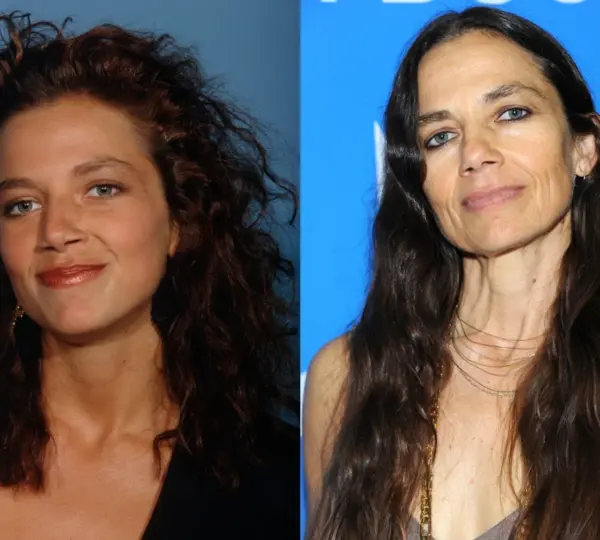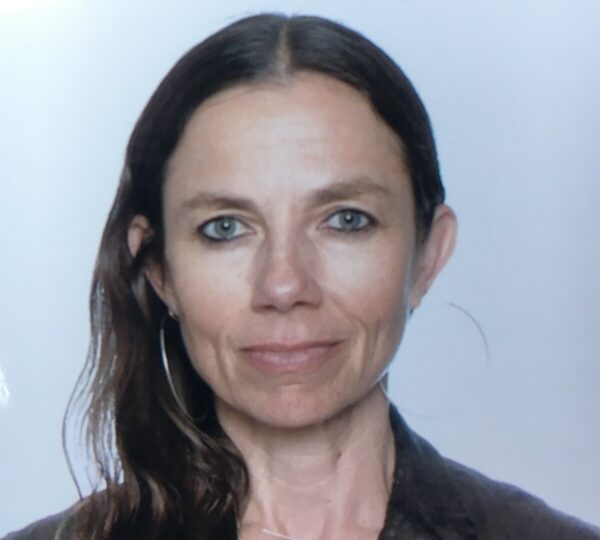In the shimmering world of 1980s Hollywood, a decade defined by bright colors, bold style, and unforgettable television, Justine Bateman stood out as one of the era’s most beloved stars. As Mallory Keaton on the hit sitcom Family Ties, she captured hearts across the country with her charm, humor, and natural on-screen presence. She was not just another actress; she represented a cultural moment, a real embodiment of the youthful vibrancy that audiences adored.
Her popularity skyrocketed, and her face became instantly recognizable on magazine covers, talk shows, and entertainment news. For many, she became a symbol of the era — a star whose light seemed destined to shine for generations.
Yet as time passed and the entertainment industry evolved, Bateman found herself facing a different kind of spotlight — one that questioned not her talent, but her appearance. In a world increasingly obsessed with youth, perfection, and digital enhancements, Bateman chose to walk a path that many in Hollywood avoid. Instead of chasing eternal youth or bending to pressure, she embraced her natural aging process.
She allowed her face to reflect the years she had lived, the emotions she had experienced, and the lessons that shaped her life. This decision, as simple as it may seem, became revolutionary in an industry where looking older is often treated like a failure rather than a fact of life.

Over the years, Bateman has spoken openly about how society views aging, particularly for women. She recalls moments when she searched her name online only to find comments criticizing her face or speculating about why she hadn’t undergone cosmetic procedures. Instead of shrinking under the criticism, she confronted it with remarkable confidence. She questioned why aging — a universal and natural process — had become something to fear.
Her perspective challenged not only Hollywood’s beauty expectations but also society’s collective fear of growing older. She explained that every line on her face tells a story, each wrinkle a memory of joy, pain, growth, or resilience. These marks are not defects to her — they are proof that she has lived.
Bateman has emphasized repeatedly that her decision is not about rejecting cosmetic enhancements entirely. She does not judge those who choose to alter their appearance. Instead, her message centers on intention. She believes that any change to one’s appearance should come from a place of self-acceptance rather than pressure. What she refuses to do is change her face to satisfy anonymous critics or industry expectations. Her refusal to conform is an act of empowerment, a declaration that her worth extends beyond physical perfection. This mindset has resonated deeply with women who feel trapped by impossible beauty standards.
As Bateman’s voice grew louder in public conversations, she became a symbol of authenticity — someone unafraid to stand against the current of superficial expectations. She began speaking at events, engaging in interviews, and writing about the emotional toll that unrealistic beauty standards place on individuals. Her book, Face: One Square Foot of Skin, explores the cultural obsession with youth and the pressure women face to maintain an artificially flawless appearance. Through her writing, she exposes how societal expectations can distort self-worth and lead many people to feel inadequate simply because their faces show signs of age.

She also frequently addresses the double standards that exist within the entertainment world. While male actors often receive praise for “aging gracefully” or developing a distinguished look, women are pressured to remain frozen in time. Bateman argues that this disparity reinforces harmful messages about beauty, value, and relevance.
Women are often made to believe that their worth declines as their faces change, while men are allowed to mature naturally. Bateman’s openness encourages both industries and individuals to question these norms and demand a broader understanding of beauty — one that includes aging rather than rejecting it.
Today, Bateman’s approach to aging has inspired a wave of conversations among people from all walks of life. Her honesty is refreshing in a culture dominated by filters, retouching, and perfection-driven trends. She reminds her audience that beauty is not a static image but a constantly evolving expression of who we are. Her courage offers others permission to step away from the pressure to look forever young. Many admire her strength, seeing her as a voice of reason in a world that often confuses appearance with identity.
Despite receiving both praise and criticism, Bateman remains steadfast in her beliefs. She refuses to let fear dictate her choices. She prioritizes inner peace over public approval, authenticity over conformity. Her journey illustrates that confidence is not found in anti-aging treatments or flawless skin but in embracing one’s true self. She encourages people to celebrate their faces as reflections of their unique life stories — stories that deserve to be seen, not erased.
Her advocacy is not limited to her own experiences; it’s part of a broader mission to redefine beauty standards in modern culture. Bateman urges individuals to look beyond superficial ideals and appreciate the complexity, depth, and humanity that come with aging. She wants people to understand that each wrinkle, each change, is a symbol of resilience and wisdom. These signs of aging should not be feared but embraced as marks of survival.
In many ways, Bateman’s journey mirrors the evolution of Hollywood itself. Once a young star admired for her fresh-faced charm, she has grown into a powerful voice advocating for a more inclusive and realistic understanding of beauty. She represents the idea that aging should not be hidden — it should be honored. Her courage continues to push conversations forward, inspiring thousands to question the standards that shape their self-image.
Bateman’s message is especially important in a digital age where filters, cosmetic editing, and unrealistic portrayals have created distorted expectations about how people should look. Social media often presents flawless skin, sculpted features, and carefully curated appearances as the norm. Bateman challenges this illusion, reminding her audience that real life is not airbrushed. Real faces change. Real people age. And that is not only acceptable — it is beautiful.

Through her authenticity, she encourages individuals to reclaim ownership of their bodies and identities. She doesn’t ask people to stop using makeup or give up beauty routines. Instead, she encourages them to examine whether their decisions are motivated by love or insecurity. For her, aging naturally was a choice rooted in self-respect — not rebellion. She simply decided that her face did not need to be corrected.
Even as critics persist, Bateman’s confidence remains unshaken. She views negativity not as a reflection of her worth but as evidence of society’s discomfort with aging. She believes that cultural change begins with individuals who are brave enough to challenge outdated ideas. By living openly and proudly, she becomes a model for others who hope to break free from judgment and embrace themselves fully.
Today, Bateman stands as a multifaceted figure — actress, director, author, and advocate. She is admired not only for her talent but for her honesty. Her perspective continues to reshape public understanding of beauty and self-acceptance. She demonstrates that true confidence is not about appearing young forever; it is about facing the world without fear or apology. In a society that constantly encourages people to reverse time, she reminds us that there is power in authenticity.
Her life story shows that aging is not a decline but a transformation. It represents the accumulation of wisdom, the growth of character, and the depth of experience. Bateman’s journey challenges the outdated belief that youth is the only form of beauty worth celebrating. She proves that beauty evolves, deepens, and becomes richer with time — just like life itself. And through her example, she encourages others to celebrate every stage of their own journey with pride.
In the shimmering world of 1980s Hollywood, a decade defined by bright colors, bold style, and unforgettable television, Justine Bateman stood out as one of the era’s most beloved stars. As Mallory Keaton on the hit sitcom Family Ties, she captured hearts across the country with her charm, humor, and natural on-screen presence. She was not just another actress; she represented a cultural moment, a real embodiment of the youthful vibrancy that audiences adored.
Her popularity skyrocketed, and her face became instantly recognizable on magazine covers, talk shows, and entertainment news. For many, she became a symbol of the era — a star whose light seemed destined to shine for generations.
Yet as time passed and the entertainment industry evolved, Bateman found herself facing a different kind of spotlight — one that questioned not her talent, but her appearance. In a world increasingly obsessed with youth, perfection, and digital enhancements, Bateman chose to walk a path that many in Hollywood avoid. Instead of chasing eternal youth or bending to pressure, she embraced her natural aging process.
She allowed her face to reflect the years she had lived, the emotions she had experienced, and the lessons that shaped her life. This decision, as simple as it may seem, became revolutionary in an industry where looking older is often treated like a failure rather than a fact of life.

Over the years, Bateman has spoken openly about how society views aging, particularly for women. She recalls moments when she searched her name online only to find comments criticizing her face or speculating about why she hadn’t undergone cosmetic procedures. Instead of shrinking under the criticism, she confronted it with remarkable confidence. She questioned why aging — a universal and natural process — had become something to fear.
Her perspective challenged not only Hollywood’s beauty expectations but also society’s collective fear of growing older. She explained that every line on her face tells a story, each wrinkle a memory of joy, pain, growth, or resilience. These marks are not defects to her — they are proof that she has lived.
Bateman has emphasized repeatedly that her decision is not about rejecting cosmetic enhancements entirely. She does not judge those who choose to alter their appearance. Instead, her message centers on intention. She believes that any change to one’s appearance should come from a place of self-acceptance rather than pressure. What she refuses to do is change her face to satisfy anonymous critics or industry expectations. Her refusal to conform is an act of empowerment, a declaration that her worth extends beyond physical perfection. This mindset has resonated deeply with women who feel trapped by impossible beauty standards.
As Bateman’s voice grew louder in public conversations, she became a symbol of authenticity — someone unafraid to stand against the current of superficial expectations. She began speaking at events, engaging in interviews, and writing about the emotional toll that unrealistic beauty standards place on individuals. Her book, Face: One Square Foot of Skin, explores the cultural obsession with youth and the pressure women face to maintain an artificially flawless appearance. Through her writing, she exposes how societal expectations can distort self-worth and lead many people to feel inadequate simply because their faces show signs of age.

She also frequently addresses the double standards that exist within the entertainment world. While male actors often receive praise for “aging gracefully” or developing a distinguished look, women are pressured to remain frozen in time. Bateman argues that this disparity reinforces harmful messages about beauty, value, and relevance.
Women are often made to believe that their worth declines as their faces change, while men are allowed to mature naturally. Bateman’s openness encourages both industries and individuals to question these norms and demand a broader understanding of beauty — one that includes aging rather than rejecting it.
Today, Bateman’s approach to aging has inspired a wave of conversations among people from all walks of life. Her honesty is refreshing in a culture dominated by filters, retouching, and perfection-driven trends. She reminds her audience that beauty is not a static image but a constantly evolving expression of who we are. Her courage offers others permission to step away from the pressure to look forever young. Many admire her strength, seeing her as a voice of reason in a world that often confuses appearance with identity.
Despite receiving both praise and criticism, Bateman remains steadfast in her beliefs. She refuses to let fear dictate her choices. She prioritizes inner peace over public approval, authenticity over conformity. Her journey illustrates that confidence is not found in anti-aging treatments or flawless skin but in embracing one’s true self. She encourages people to celebrate their faces as reflections of their unique life stories — stories that deserve to be seen, not erased.
Her advocacy is not limited to her own experiences; it’s part of a broader mission to redefine beauty standards in modern culture. Bateman urges individuals to look beyond superficial ideals and appreciate the complexity, depth, and humanity that come with aging. She wants people to understand that each wrinkle, each change, is a symbol of resilience and wisdom. These signs of aging should not be feared but embraced as marks of survival.
In many ways, Bateman’s journey mirrors the evolution of Hollywood itself. Once a young star admired for her fresh-faced charm, she has grown into a powerful voice advocating for a more inclusive and realistic understanding of beauty. She represents the idea that aging should not be hidden — it should be honored. Her courage continues to push conversations forward, inspiring thousands to question the standards that shape their self-image.
Bateman’s message is especially important in a digital age where filters, cosmetic editing, and unrealistic portrayals have created distorted expectations about how people should look. Social media often presents flawless skin, sculpted features, and carefully curated appearances as the norm. Bateman challenges this illusion, reminding her audience that real life is not airbrushed. Real faces change. Real people age. And that is not only acceptable — it is beautiful.

Through her authenticity, she encourages individuals to reclaim ownership of their bodies and identities. She doesn’t ask people to stop using makeup or give up beauty routines. Instead, she encourages them to examine whether their decisions are motivated by love or insecurity. For her, aging naturally was a choice rooted in self-respect — not rebellion. She simply decided that her face did not need to be corrected.
Even as critics persist, Bateman’s confidence remains unshaken. She views negativity not as a reflection of her worth but as evidence of society’s discomfort with aging. She believes that cultural change begins with individuals who are brave enough to challenge outdated ideas. By living openly and proudly, she becomes a model for others who hope to break free from judgment and embrace themselves fully.
Today, Bateman stands as a multifaceted figure — actress, director, author, and advocate. She is admired not only for her talent but for her honesty. Her perspective continues to reshape public understanding of beauty and self-acceptance. She demonstrates that true confidence is not about appearing young forever; it is about facing the world without fear or apology. In a society that constantly encourages people to reverse time, she reminds us that there is power in authenticity.
Her life story shows that aging is not a decline but a transformation. It represents the accumulation of wisdom, the growth of character, and the depth of experience. Bateman’s journey challenges the outdated belief that youth is the only form of beauty worth celebrating. She proves that beauty evolves, deepens, and becomes richer with time — just like life itself. And through her example, she encourages others to celebrate every stage of their own journey with pride.
